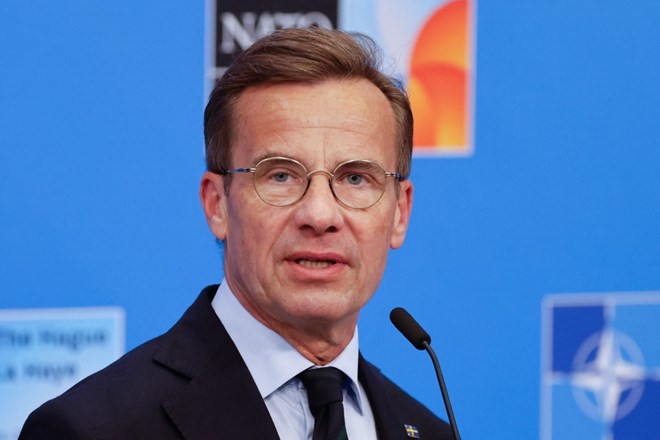Everyone sees a few countries shouldering almost all the responsibility, Swedish Foreign Minister Maria Malmer Stenergard said on November 20, before entering the EU Foreign Minister meeting in Brussels ( Belgian), stressing: It is unfair and cannot be maintained for a long time.
According to the Swedish Foreign Minister, Nordic countries with a population of less than 30 million have contributed to the total military aid that the remaining NATO countries - about 1 billion people - have provided this year. This cannot be maintained. It is unreasonable at all, said ba stenergard.
ba Stenergard criticized some European leaders for showing strong support for Ukraine in their speeches but not spending the money as much, saying the European Union (EU) must reach an agreement on how to continue supporting Kiev when the leaders meet in Brussels in December.
The Swedish Foreign Minister noted that the EU has even spent more money on Russian energy imports since the conflict broke out than the total amount of money the bloc has contributed to Ukraine, showing policy inadequacies as the bloc is trying to escape dependence on Russian energy.
These rare straightforward statements reflect a reality that EU diplomats rarely make public: Although leaders often strongly declare support for Ukraine, the financial and military contributions between countries are very different.

Denmark - one of the Nordic countries - has contributed more than 10 billion euros to Ukraine since the conflict broke out in 2022, equivalent to nearly 3% of GDP. Meanwhile, Spain in Southern Europe has only supported 1.48 billion euros, less than 0.2% of GDP, according to the Kiel Institute (Germany) - a company that tracks contributions.
In general, the Nordic and Baltic countries contribute the most GDP, followed by the Netherlands, the UK, Germany, Poland and France; Hungary at the lowest level, below 0.04% of GDP.
A day earlier, Swedish Prime Minister Ulf Kristersson announced that he would continue to provide military aid to Ukraine, but noted that Sweden's funds for this activity were gradually depleted.
Kristersson has pledged to promote Ukraine's entry into the EU and is actively working to reach a consensus on the use of frozen Russian assets at the European Council meeting in December.
We have supported Ukraine from the beginning. More than 10 billion euros in military and civilian aid has been provided since Russia launched a special military campaign. Sweden has become one of the world's largest military aid providers, ranking 6th in absolute value, said Kristersson.












